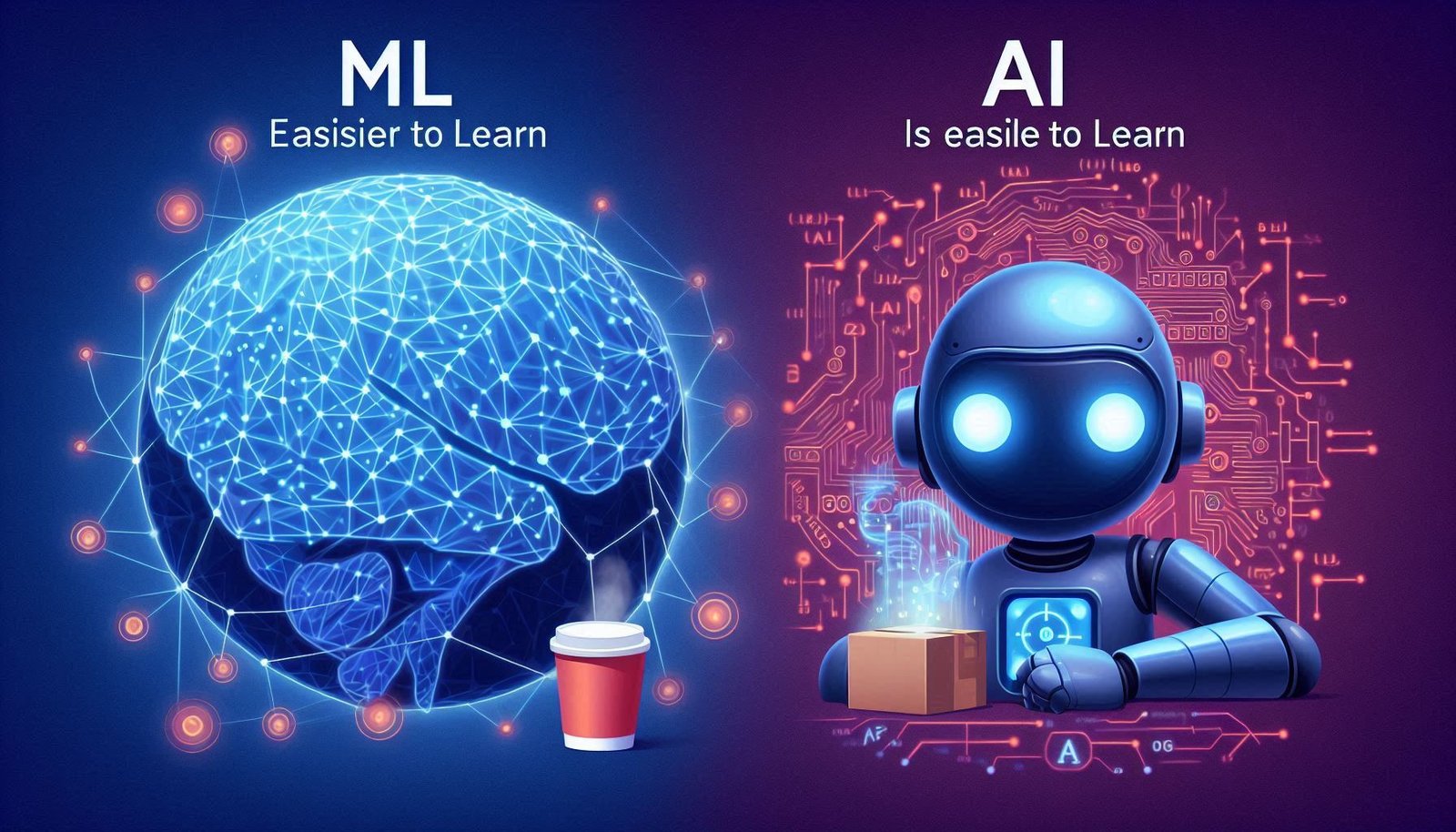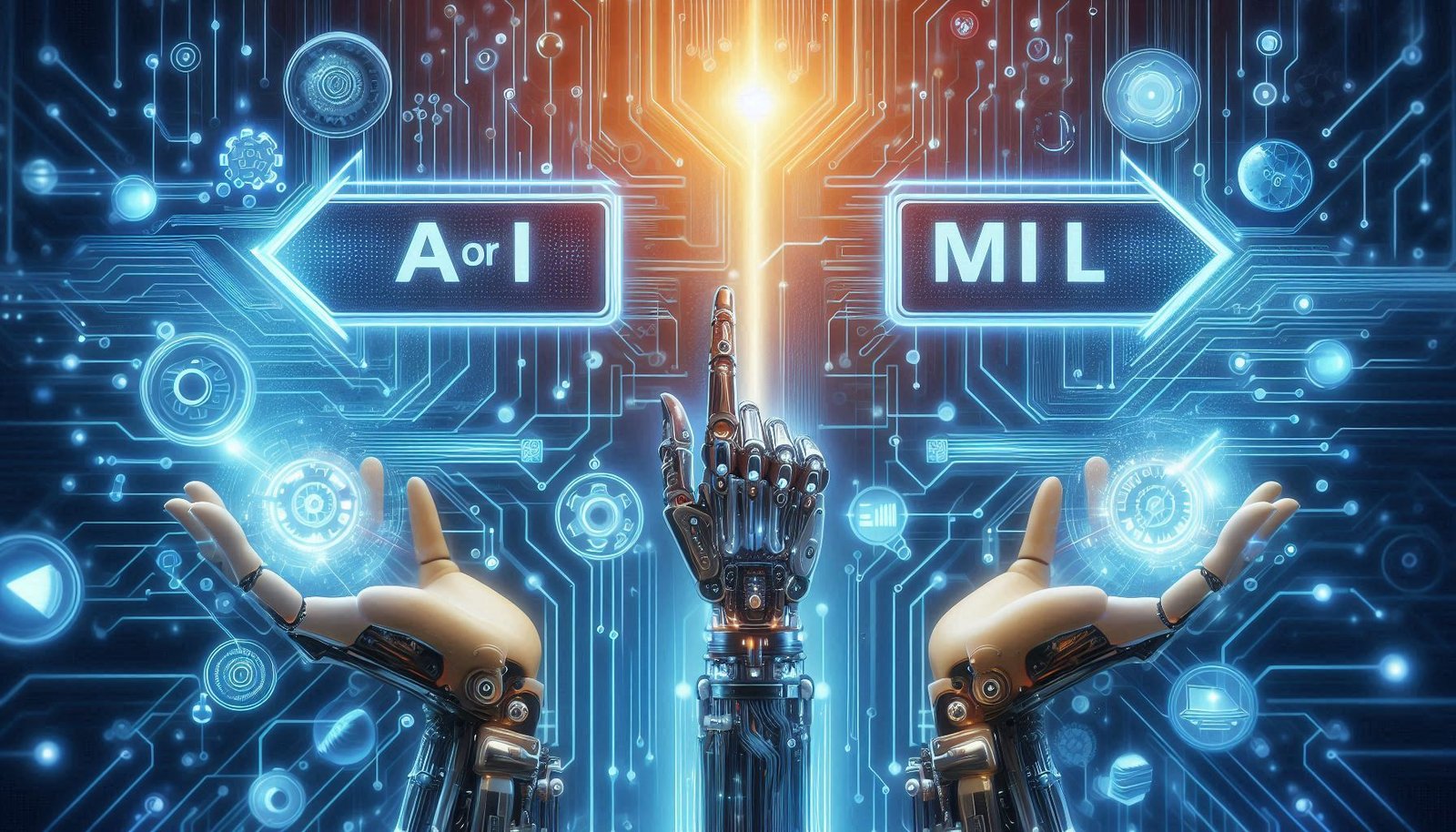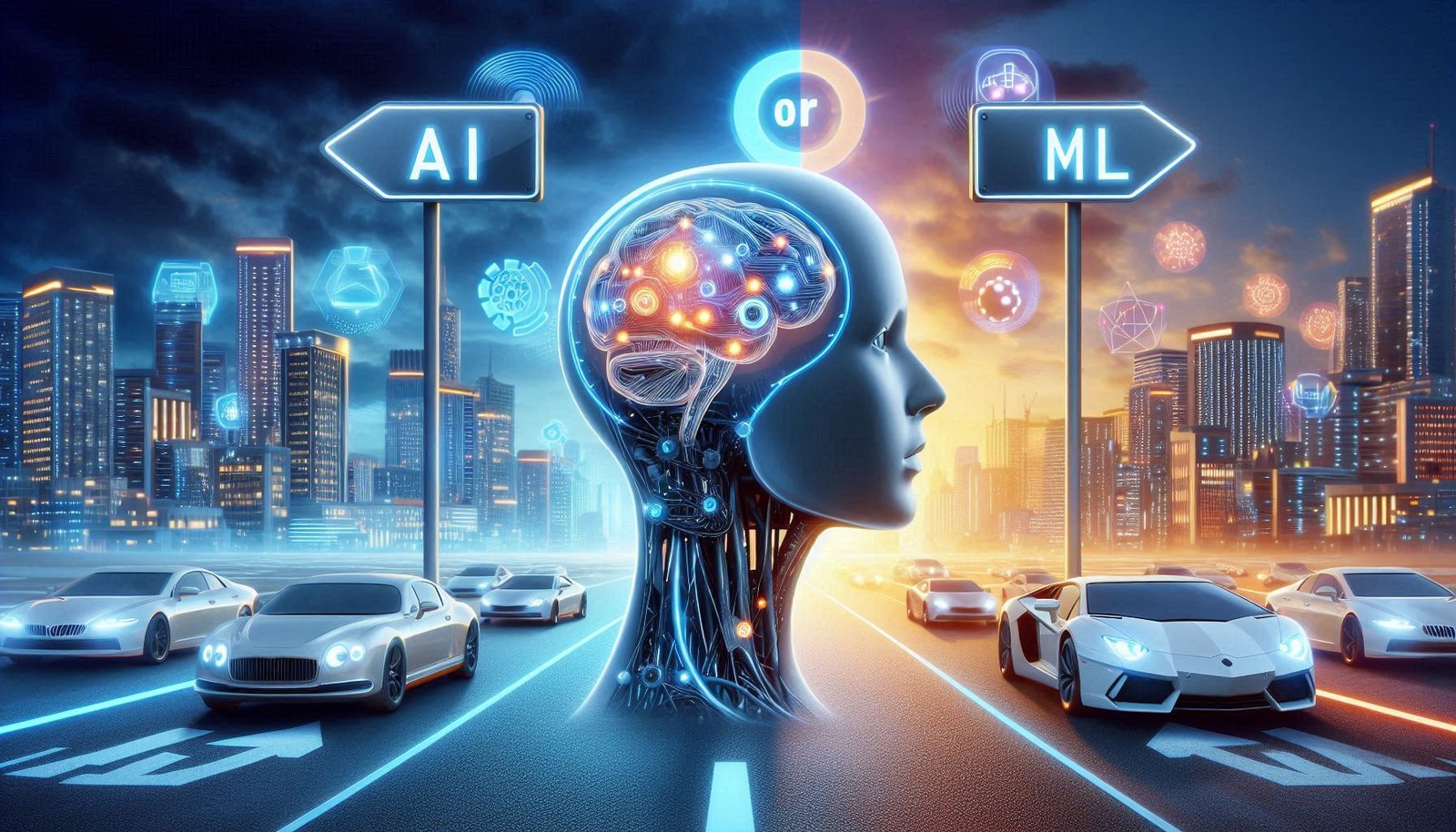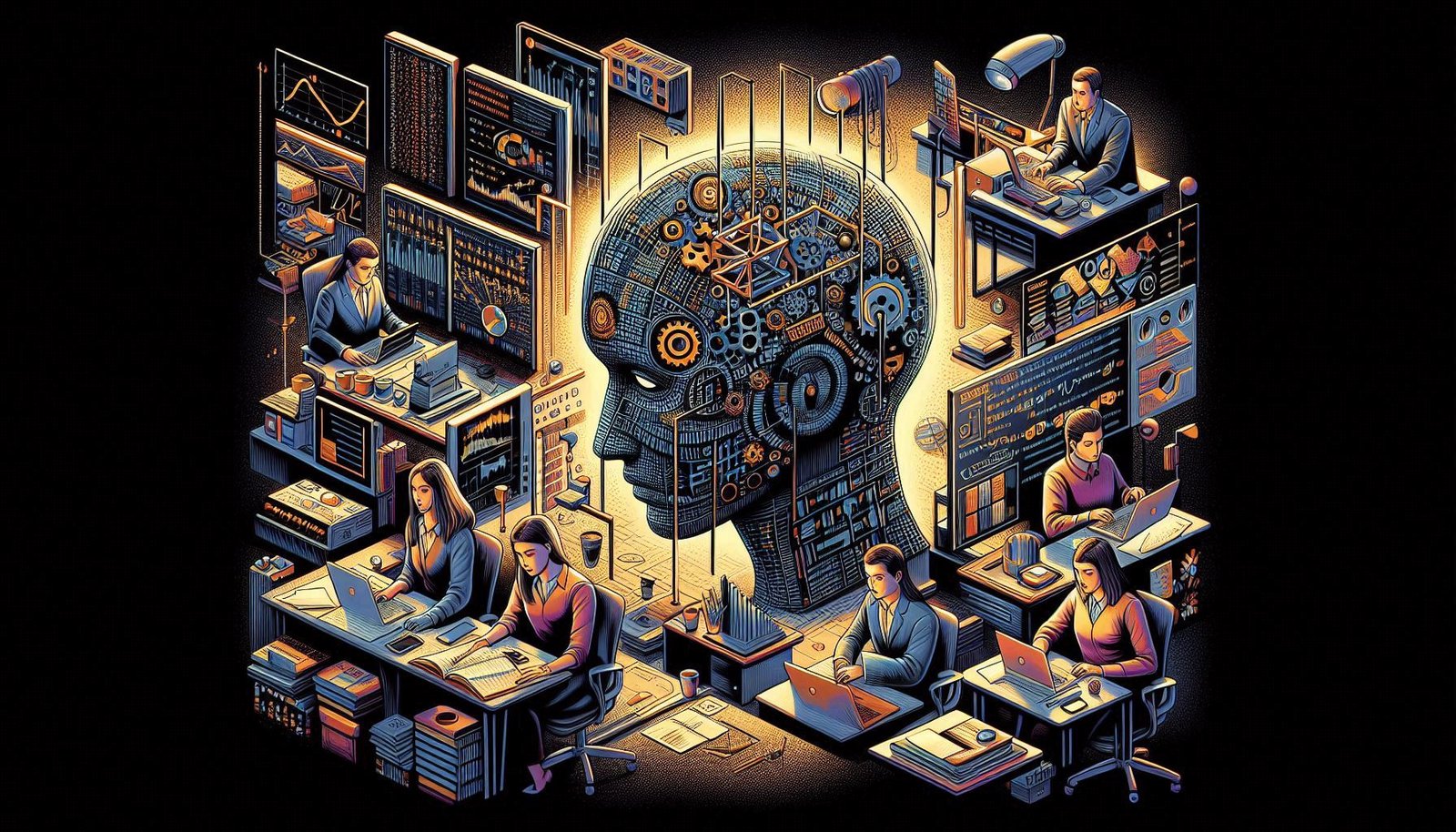On average, ML is easier to learn than AI for a few reasons. Machine learning (ML) is a narrower field under the umbrella of AI, tightly encompassing activities involving computer algorithms that can learn from data and can solve specific problems. However, AI is a broader field of study that seeks to build systems that can demonstrate human-like intelligence, often involving more complex reasoning and problem-solving abilities which can make it harder to develop and understand. so lets see (Is Machine Learning easier than ai)

Table of Contents
ToggleShould I learn ML or AI first:
If you are new, then ML comes first. ML, on the other hand, is more specialized and will provide you with a good understanding of how machines learn from data. It is very easy to understand for starters and also has a lot of real-time applicability. When you’ve got a handle on ML you can move on to the wider, more complex field of Artificial Intelligence (AI). If AI is the final frontier, then ML is the beginning, the most logical starting point for you and me with AI.

Which is best for future AI or ML:
AI and ML are both futuristic technologies, but Machine Learning is in greater demand at present. ML is a subset of AI and is found across industries such as healthcare, finance, and entertainment. Looking ahead, we can expect expanding AI applications, whether self-driving cars or smarter robots. Yet, ML will continue to be a central part of making AI possible. So, first learning ML is a good choice but AI is surely the future.
See More : Generative AI: Revolutionizing in ML
Will AI replace ML:
No, AI won’t replace ML. In fact, Machine Learning is a key part of AI. ML helps AI systems learn from data and improve over time, making them smarter. Without ML, AI would struggle to function effectively. So, rather than replacing each other, they work together to build smarter technologies. ML is the backbone that powers many of AI’s best features!

Key Points to Consider:
Focus:
- Machine Learning: The focus of machine learning is to find patterns and insights from data and allows a machine to predict or decide based on that information. ML is usually applied to narrow and specific tasks, like predicting the weather, classifying images, or recognizing speech.
- Artificial Intelligence: On the other hand, AI is more than just learning from data. It includes building smart systems that are proficient in performing human-like tasks over a range of capabilities. Elements of reasoning may be (partially) incorporated into AI systems, planning, natural language processing, and problem-solving to handle more general tasks, which can make it more challenging to develop.

Complexity:
- Machine Learning: ML is the base of many AI projects, so most of the simplest tasks in AI are based on machine learning algorithms (image classification, speech recognition, etc.) This means that ML can be more considered as an easier entry point for those who are new to the world of AI. Understanding the low-level details of ML may be a bit tricky but start getting the flavor of ML is pretty easy because of ML tools and frameworks such as Scikit-learn, TensorFlow, and PyTorch.
- Artificial Intelligence: While learning is relatively straightforward, AI is much more complicated in its own right, considering things like reasoning, planning, and context. Although ML algorithms do constitute the backbone of several AI systems, more often, remembering the need for deeper logical reasoning skills, heuristic search procedures, and cognitive models of decision-making for AI to work is mandatory. Consequently, this may warrant a deeper understanding of computational paradigms and concepts beyond data-driven learning to work with AI.
Mathematical Depth:
- Machine Learning: Although some understanding of mathematics (linear algebra, calculus, and probability) is needed in ML, it is possible to understand many standard ML algorithms, linear regression, decision trees or clustering algorithms, without delving deeply into advanced mathematics. Understanding the principles underlying the analyses, along with how to implement those principles with various software tools, is the emphasis.
- Artificial Intelligence: However, certain AI techniques require a higher level of mathematics knowledge. Like in more high-level tasks such as expert system building, human cognition simulation or robotic algorithms, those tasks involved pretty complicated math models, logic, and optimization techniques. Similarly, because of reinforcement learning, deep learning, neural network, and even other areas fall in the category of advanced AI fields, higher knowledge pertaining to advanced calculus, probability theory and optimization algorithms are needed here, which adds high-end mathematical and computational complexity.
See More :Freelancing Opportunities in Machine Learning 2025

Key Differences Between AI and Machine Learning
So, the key to answering this question lies in understanding the differences between AI and ML:Is Machine Learning easier than AI? To make it clearer, let’s compare the two.
| Aspect | Artificial Intelligence | Machine Learning |
|---|---|---|
| Definition | A broad field focused on creating intelligent systems. | A subset of AI that focuses on data and learning patterns. |
| Complexity | Generally more complex and includes multiple subfields. | Focuses on specific tasks like prediction and classification. |
| Technology Used | Includes various techniques like logic, rule-based systems, search algorithms. | Primarily relies on statistical methods and algorithms. |
| Goal |
To develop intelligent systems that replicate human cognitive functions. |
Training to create models that learn from data and keep getting better. |
| Use Cases | Robotics, natural language processing, expert systems. | Image recognition, speech recognition, recommendation systems. |
Is Machine Learning Easier than AI?
Having understood the foundation, let us get straight to the crux: Is Machine Learning easier than AI?
If you are trying to achieve something, the answer depends on that. Overall, Machine Learning could be considered easier compared to AI being that it is more concrete and has well-defined goals. Here’s why:
Machine Learning is More Focused
Remember that machine learning is a subset of AI, so is also an independent field of study. Machine learning is a subset of AI that deals specifically with training models on data to make predictions or decisions, while AI has an array of subcategories like robotics, computer vision, natural language processing, etc.
- Limited Scope: ML only involves patterns and predictions, so it is a more contained field than the broader AI domain.
- Clearer Goals: In ML, your main goal is to improve model accuracy by feeding it data and tweaking its parameters. AI, on the other hand, involves more complex and abstract tasks.
See More :ML 2025 Emerging Trends and Innovations to Watch

Simpler Concepts in ML
Machine Learning algorithms are based on statistical concepts and data-driven decision-making. With enough data, the models improve on their own. In comparison, AI covers a wider range of techniques such as symbolic reasoning, decision trees, and game theory.
- Less Technical: Understanding basic ML concepts (such as supervised learning) can be easier than grasping the underlying theories behind AI.
- Clearer Methodologies: ML has fewer moving parts compared to the multifaceted nature of AI.
Availability of Tools and Libraries
There are also a ton of freely available tools, libraries, and frameworks available for Machine Learning as well. Developer can easily do it with libraries like TensorFlow, Scikit-learn, and Keras and beginners to start building machine learning models.
- User-Friendly: With pre-built models and functions, even beginners can train and deploy ML models.
- Less Setup Needed: AI systems can require much more complex infrastructure and a deeper understanding of underlying processes.
How to Get Started with Machine Learning
If you’re interested in starting with Machine Learning, follow these steps:
1. Learn the Basics of Mathematics and Statistics
Machine Learning relies heavily on linear algebra, calculus, and probability. A basic understanding of these concepts will help you better grasp the algorithms used in ML.
2. Pick a Programming Language
Python is the most commonly used programming language for Machine Learning due to its simplicity and the vast number of libraries available.
3. Explore ML Libraries and Frameworks
Start with popular libraries such as Scikit-learn, TensorFlow, or PyTorch. These libraries provide you with pre-built models, algorithms, and tools to get started.
4. Practice on Real Datasets
Find datasets to practice on platforms like Kaggle. Building models on real-world data will give you practical experience and help you better understand ML techniques.
5. Work on Projects
The first thing is by doing — the best way. Begin with small projects like creating a recommendation system or a simple classification model, and gradually move towards more complex projects.
FAQs
1. Can I learn AI without ML?
It is possible to learn some aspects AI without so much as touching the surface of Machine Learning (ML) (which forms the backbone of most existing AI using ml methods.) ML is often the heart of many AI applications, so if you learn ML, understanding AI will be relatively easier to comprehend and will allow you to get more hands-on experience with AI.
2. Can I learn ML without math?
It’s possible to start learning ML without advanced math, especially for basic algorithms. However, having a basic understanding of linear algebra, probability, and statistics will help you better grasp how the models work and improve your results.
3. Is ML full of maths?
Machine Learning does involve math, but you don’t need to be a math expert to get started. Basic concepts like algebra and probability are enough for most beginner projects. As you progress, more advanced math might be needed, but you can always learn it step-by-step.
4. How do I teach myself ML?
To teach yourself ML, start with online courses, books, and tutorials. Python is a great language to begin with, as it’s beginner-friendly and has many ML libraries. Work on small projects using datasets from websites like Kaggle, and practice different algorithms to build your skills.
5. Does machine learning require coding?
Yes, ML is code-heavy but it doesn’t need to be daunting. Python is a very charging language, which has a wealth of libraries such as Scikit-learn, TensorFlow, etc., which helps solve ML codes easily. As you get better, you’ll learn to write more complex code, but it’s totally manageable!
Conclusion
However, since ML is more focused although less complex than AI as it focuses more on implementation, it makes ML relatively easier than AI. But AI is a broad umbrella that covers various types of intelligent systems and methodologies. Whether you explore AI or Machine Learning, both are at the forefront of technology.
For beginners, Machine Learning is a good way to dive into AI fundamentals. Through patience, practice, and persistence, you can dive deeper into both fields and unlock endless possibilities in the world of artificial intelligence.
[…] models enable generative AI which is based on both these complex ML models, such as Generative Adversarial Network (GAN) and Transformer-based architectures( GPT). […]
[…] service providers in Germany are consolidating into essential solutions for diverse industries. Machine learning development has a lot of scope in a country with strong foundations in engineering, research and […]
[…] and problem-solving. So, in this article, we are going to share with you what cloud-based quantum machine learning is, its advantages, and the future of AI with […]